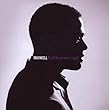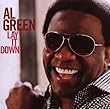 On the nine-song set of songs BLACKsummers’ Night by Maxwell, in the fast-paced song “Help Somebody,” Maxwell takes a hard look at self and the need to be a better, more generous and peaceful person; and in a lyric that moves into more speculative territory, he declares, “If you see the future, ask it if I’m there.” One imagines Maxwell will be part of the future as he has been part of the past. I hope that.
On the nine-song set of songs BLACKsummers’ Night by Maxwell, in the fast-paced song “Help Somebody,” Maxwell takes a hard look at self and the need to be a better, more generous and peaceful person; and in a lyric that moves into more speculative territory, he declares, “If you see the future, ask it if I’m there.” One imagines Maxwell will be part of the future as he has been part of the past. I hope that.
Tag: music
Heritage and Passion: Al Green’s Lay It Down
 It is not always easy to predict the artists who will be seen as important to an art form or culture: it takes years for us to live with art, years for the art to pass the rigors of personal mood and public questions, leaving some artists forgotten and others raised up. Whether singing of love and sex or spirituality, Al Green is important.
It is not always easy to predict the artists who will be seen as important to an art form or culture: it takes years for us to live with art, years for the art to pass the rigors of personal mood and public questions, leaving some artists forgotten and others raised up. Whether singing of love and sex or spirituality, Al Green is important.
That Voice, Those Words: Bob Dylan, Time Out of Mind
 The rhythm is more prominent, more enthusiastic, with swing and twang, in Time Out of Mind’s “Dirt Road Blues,” than on “Love Sick”; and “Dirt Road Blues” is a song I can imagine being sung at a country fair. There is scene-setting and the comparison of different times—late night is mentioned, as is the changing pace of different days—in Dylan’s draggy voice, a voice that seems the representation of what he feels.
The rhythm is more prominent, more enthusiastic, with swing and twang, in Time Out of Mind’s “Dirt Road Blues,” than on “Love Sick”; and “Dirt Road Blues” is a song I can imagine being sung at a country fair. There is scene-setting and the comparison of different times—late night is mentioned, as is the changing pace of different days—in Dylan’s draggy voice, a voice that seems the representation of what he feels.
Soul Man, Sex Symbol: Marc Broussard, Keep Coming Back
 The creative work of Marc Broussard has drawn many comparisons to rhythm-and-blues music made from 1960s until now, but Broussard’s artistry seems influenced by that music, and in conversation with that music, rather than exploitative; and Broussard’s album Keep Coming Back has a richer sound than most of the other people, such as Duffy, Sharon Jones, Raphael Saadiq, Ryan Shaw, and Amy Winehouse, now mining the same vein.
The creative work of Marc Broussard has drawn many comparisons to rhythm-and-blues music made from 1960s until now, but Broussard’s artistry seems influenced by that music, and in conversation with that music, rather than exploitative; and Broussard’s album Keep Coming Back has a richer sound than most of the other people, such as Duffy, Sharon Jones, Raphael Saadiq, Ryan Shaw, and Amy Winehouse, now mining the same vein.
PURE MUSIC (I Want to Talk About You): the work of Christian McBride and Inside Straight (Kind of Brown), the Steve Kuhn Trio (Mostly Coltrane), and Roman Street (Amore)
 Gorgeous horn-playing echoes the blues in “Spiritual,” a contemplation of the spirit that does not deny the sensual (however, the tumult near the end could be wailing—the naked complaint, the shameless call for divine help); and Steve Kuhn’s “Trance,” which completes the album, is a quiet piano piece, yet able to evoke dimensions.
Gorgeous horn-playing echoes the blues in “Spiritual,” a contemplation of the spirit that does not deny the sensual (however, the tumult near the end could be wailing—the naked complaint, the shameless call for divine help); and Steve Kuhn’s “Trance,” which completes the album, is a quiet piano piece, yet able to evoke dimensions.
All Hail: Irma Thomas, The Soul Queen of New Orleans: 50th Anniversary Celebration
 Circumstances can call forth a deeper response from a person, from an artist. Irma Thomas takes the traditional song “Another Man Done Gone” and adapts it to life in hurricane country, giving it a rustling beat, and with new words turning it into a news report and a lament.
Circumstances can call forth a deeper response from a person, from an artist. Irma Thomas takes the traditional song “Another Man Done Gone” and adapts it to life in hurricane country, giving it a rustling beat, and with new words turning it into a news report and a lament.
A Young Man’s Tenderness: Sam Cooke’s Portrait of A Legend and Nightbeat
 Cooke’s songs—whether an affirmation of dance, a wistful call for help, a humble declaration of love, a recognition of prison as a fact, or an expression of sexual assurance—were a young man’s testament and they often carried a young man’s tenderness. Cooke’s phrasing bears traces of the sung spiritual, but his is obviously not a voice that could ever be anonymous, buried within a tradition.
Cooke’s songs—whether an affirmation of dance, a wistful call for help, a humble declaration of love, a recognition of prison as a fact, or an expression of sexual assurance—were a young man’s testament and they often carried a young man’s tenderness. Cooke’s phrasing bears traces of the sung spiritual, but his is obviously not a voice that could ever be anonymous, buried within a tradition.
Between Grief and Nothing I Will Take Grief: Black Bayou Construkt, Kingdoms of Folly
Kingdoms of Folly, it is easy to conclude that Dege Legg is a musician who writes, rather than a writer who makes music, and he has an instinct for creating something both attractive and significant, and a firm control of musical dynamics.
This Great Society Is Going Smash: The Books, Lost and Safe
 On the album Lost and Safe by The Books, we hear isolated notes and then a whispery voice begins to issue brainy observations in the piece entitled “A Little Longing Goes Away”: “Yes and no are just distinguished by distinction, so we choose the in-between” and “Everybody’s busy waiting for the go-ahead, but by then their heads are gone.”
On the album Lost and Safe by The Books, we hear isolated notes and then a whispery voice begins to issue brainy observations in the piece entitled “A Little Longing Goes Away”: “Yes and no are just distinguished by distinction, so we choose the in-between” and “Everybody’s busy waiting for the go-ahead, but by then their heads are gone.”
Conjuring Consciousness, Conjuring Change: Cassandra Wilson, Blue Light ‘Til Dawn
 Cassandra Wilson uses the range of her voice in unexpected ways in that song, and in Ann Peebles’s “I Can’t Stand the Rain” in which Wilson is partnered by Chris Whitley’s guitar (I loved Chris Whitley’s album Living with the Law). Throughout her album Blue Light ‘Til Dawn, Cassandra Wilson reveals the individual psyche, and the human spirit: we hear tenderness, worry, and anger as part of a consciousness of turmoil and change.
Cassandra Wilson uses the range of her voice in unexpected ways in that song, and in Ann Peebles’s “I Can’t Stand the Rain” in which Wilson is partnered by Chris Whitley’s guitar (I loved Chris Whitley’s album Living with the Law). Throughout her album Blue Light ‘Til Dawn, Cassandra Wilson reveals the individual psyche, and the human spirit: we hear tenderness, worry, and anger as part of a consciousness of turmoil and change.